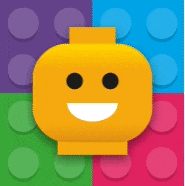
Knowing that your child needs general anesthesia for their dental work can be a very anxious experience for any parent. However, it can also be highly beneficial, particularly in facilitating necessary dental procedures that might otherwise cause anxiety in your child or perhaps even be traumatic for them. But is general anesthesia safe for children?
Your pediatric dentist will only advise general anesthesia if it’s deemed essential for your child. This approach enables your child to sleep through the entire procedure, erasing any memory of it afterward. Such a method can significantly contribute to building a trusting and confident relationship between your child and their pediatric dentist. Similar to protocols for adults undergoing general anesthesia, there will be specific guidelines regarding eating and drinking prior to the procedure for your child, as well as post-procedural restrictions to follow.
How does general anesthesia for children work?
Before Anesthesia
Prior to your child undergoing general anesthesia, you can expect a call from a scheduling nurse who will provide detailed instructions regarding your child’s dietary intake. For infants younger than 12 months there will be other specific guidelines that they will give you.
Children aged one and above should refrain from consuming solid foods or non-clear liquids after midnight the night (or 8 hours prior) before the procedure. This restriction includes milk, formula, juices with pulp, chewing gum, or candy. The nurse or anesthesiologist will give other guidelines for clear liquids, such as water, Pedialyte, Kool-Aid, or transparent juices.
Regardless of your child’s age, adherence to the provided instructions is crucial. If your child takes daily medication, administer it as instructed by the anesthesiologist or the nurse. Additionally, you might consider bringing a comforting item from home for your child to hold during the administration of anesthesia.
General Anesthesia Process
General anesthesia induces a state of complete bodily unconsciousness in your child, which can prove beneficial for specific dental procedures, ensuring their reflexes are fully relaxed. Throughout the procedure, your child will experience no pain and will retain no memory of it afterward. A Pediatric Anesthesiologist, specialized in administering anesthesia to children, will oversee your child’s medication and monitor their condition during the procedure.
Prior to the procedure, the anesthesiologist will consult with you to review your child’s medical history and determine the appropriate medication.
After Anesthesia
Following completion of your child’s dental procedure, they will be transferred to a recovery room where attentive nurses will monitor their vital signs during the recuperation process. The effects of general anesthesia can persist for several hours, and it’s common for your child to experience throat soreness for up to 1 to 2 days afterward. Depending on the nature of the procedure, your child’s gums and mouth may also be tender for several days. It’s crucial to offer only soft foods to your child during the initial hours post-anesthesia to prevent dizziness and nausea.
Who can benefit from general anesthesia for dental work
- Children with special needs
- A child with underlying health conditions
- Young children
- If a child has extensive dental treatment needs
Your Pediatric Dentist will collaborate with you to ascertain the most suitable treatment approach tailored to your child’s specific requirements.
To ensure your child’s safety and comfort during a dental procedure, the dentist may opt for the use of general anesthesia in the operating room. This approach is particularly suitable for extensive or intricate procedures that require a prolonged duration or involve multiple simultaneous treatments. A pediatric anesthesiologist, specializing in anesthesia for children, will administer medications to induce a deep and tranquil sleep for your child throughout the procedure.
Here’s some more information regarding general anesthesia for children with dental work.
Does the American Academy of Pediatric Dentistry recommend the use of sedation or anesthesia in young children?
In its ‘Policy on the Use of Deep Sedation and General Anesthesia in the Pediatric Dental Office,’ last revised in 2012, the AAPD acknowledges its role as an advocate for oral health across various age groups and individuals with special healthcare needs. The policy recognizes that there are patient populations for whom routine dental care using non-pharmacologic behavior guidance techniques may not be feasible. It further acknowledges that certain patients, due to factors such as extensive treatment needs, acute situational anxiety, uncooperative behavior appropriate for their age, underdeveloped cognitive abilities, disabilities, or medical conditions, may benefit from deep sedation or general anesthesia.
Should your child require general anesthesia, take comfort in knowing that she is under the care of highly competent hands. Dr. Levi Sorenson and his team are equipped with the necessary training in emergency procedures, ensuring they can swiftly and effectively respond to any unlikely adverse reactions that may occur.
To keep your child safe, your pediatric dentist may recommend general anesthesia.

Are you looking for a dental home for your child? Call us to schedule an appointment!
Call us and schedule your child’s appointment today: (702)586-4347
Your child’s first dental visit
first dental visit for child “When should my child first...
Read MoreAre dental x-rays safe for my child?
Are dental x-rays safe for my child? The most common...
Read More




